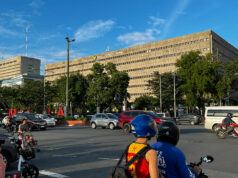DOING business in today’s world has never been more challenging and unpredictable than ever before. Companies need to manage resources very carefully and expanding the business via investment in durable equipment needs to be done in the most efficient manner. While outright cash purchase, bank loans or supplier credit may be the most common alternatives, the prudent businessman or chief financial officer (CFO) will look at leasing as a viable option as it can provide the best leverage for asset acquisition where 95% of total cost can be financed, as provided for under Republic Act 8556.
A lease is a contractual arrangement where the owner or lessor of an asset allows the user or lessee to use an asset/equipment based on a mutually-agreed monthly lease payments. It gives an avenue for business owners to make use of assets at a low initial cash outlay and match monthly payments with economic benefits, income or savings derived from the acquired equipment.
All businesses require asset acquisition: vehicles, racking systems, capital equipment for IT and office, medical and hospital, industrial and heavy equipment, trucks, and the like. A lease can be structured as short or long term, depending on the economic life of the leased asset based on usage and the nature of the business. Leasing companies have also become creative over time as they can now offer various end of term options, lease structures on guaranty deposits, residual values and add-on services.
There are different types of leasing arrangements and various considerations that business owners can identify with their preferred leasing partners. Reputable leasing companies are mostly joint ventures with global players from Japan, including Orix Metro Leasing & Finance Corp., BPI Century Tokyo Lease & Finance Corp., BDO Finance Corp., RCBC Leasing & Finance Corp. and PNB-Mizuho Leasing & Finance Corp.
FINANCE LEASE
Finance lease, also known as a full-payout lease, capital lease or lease-to-own, is a non-cancelable type of lease that obligates the lessee to make periodic lease payments during the lease term. This type of lease is popular across various industries for the acquisition of specialized and non-specialized equipment.
A finance lease generally works like a loan but involves a lower initial cash outlay, with no collateral required and no chattel mortgage fees. The asset, which is owned by the lessor, will serve as the security for the financing.
OPERATING LEASE
Meanwhile, a lease is classified as an operating lease if it does not transfer substantially all the risks and rewards incidental to ownership. The most valuable characteristics of an operating lease are its end of the lease term options: (1) renew the lease if the economic benefits from the asset can still be recognized by the lessee, (2) purchase the equipment at a mutually agreed price, or (3) return the equipment eliminating the costs associated with obsolescence or disposal.
An operating lease also provides low initial cash outlay with no collateral required, similar to a finance lease. Also, since it is essentially a rental contract, there will be no documentary stamp tax nor chattel mortgage fees. If you are a VAT-registered company, the rental payments provide input VAT to the company. All these end of term options and tax benefits become significant for companies that manage a large fleet of non-specialized assets, such as vehicles, which are usually periodically updated or upgraded. This can also be packaged to support company car plan programs, which may allow an employee to purchase the assigned vehicles at the end of the lease term.
Most advanced economies in the world like Japan, US and Europe use leasing as a standard mode of acquisition for various equipment and long-term vehicle rentals are commonplace. So if you are contemplating on buying capital equipment for your industrial, manufacturing, warehouse operations, refleeting your pool of trucks or employee vehicles, upgrading or acquiring new hospital equipment, consider leasing a primary option to leverage on the asset and generate substantial savings.
Thank you to Christine Bandol, president of PNB-Mizuho Leasing, for the inputs in this article.
Flor Gozon Tarriela is chairman of the Philippine National Bank, PNB Capital and PNB Mizuho Leasing & Finance Corporation. She is a former Undersecretary of Finance and the first Filipina vice-president of Citibank N.A. She is a trustee of FINEX and an Institute of Corporate Directors fellow



